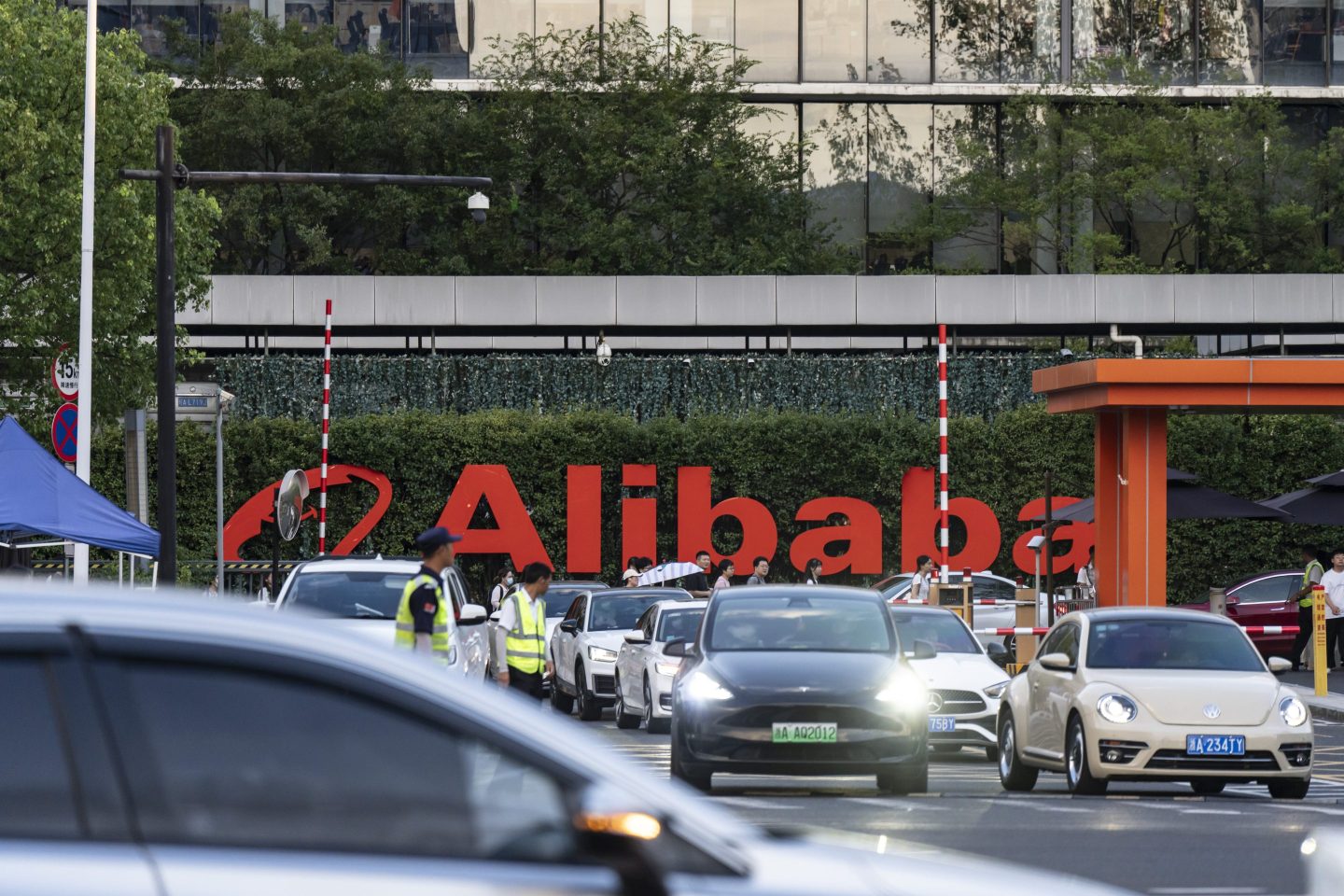Shares in Chinese e-commerce giant Alibaba Group Holding jumped 4.2% in Hong Kong trading on Tuesday, following the company’s inclusion in a scheme that allows mainland Chinese investors to invest in stocks traded in Hong Kong. The jump added about $8 billion to Alibaba’s market value, bringing the firm’s total market capitalization to around $202 billion.
In late August, Alibaba shareholders approved a plan to upgrade its Hong Kong listing to primary status, allowing the company’s shares to qualify for the Stock Connect scheme, which connects stock exchanges in Hong Kong, Shenzhen, and Shanghai.
Alibaba launched a secondary listing in Hong Kong in 2019, following a U.S. debut on the New York Stock Exchange in 2014.
The broader Hang Seng Index rose 0.2% on Tuesday.
Alibaba vs. PDD
By joining Stock Connect, mainland Chinese investors can now trade Alibaba’s Hong Kong–traded shares. That could unlock as much as $19.5 billion in Chinese capital, according to estimates cited by Bloomberg.
Alibaba’s inclusion in the Stock Connect scheme could give it an advantage over its newest competitor, PDD Holdings, owner of the Pinduoduo and Temu e-commerce platforms.
Joining Stock Connect “allows mainland investors to invest in [Alibaba] for the very first time,” says Chelsey Tam, a senior equity analyst at Morningstar. “Mainland investors who favor companies with higher levels of transparency, dividends, share buybacks, and investor communication are likely to favor [Alibaba] over PDD, despite the latter having higher growth.”
WeChat operator Tencent and fellow e-commerce platform JD.com are already part of Stock Connect.
PDD’s platforms, which target lower-income consumers, have managed to take market share from more established companies like Alibaba and JD.com. In a memo to employees late last year, Alibaba cofounder Jack Ma praised PDD’s success, using it to encourage the company he founded to “correct its course.”
PDD’s shares are down over 30% since the e-commerce company warned two weeks ago that fierce competition in China’s online shopping sector could weigh on growth.
Alibaba still has a long path to recovery
Alibaba’s shares are still around 70% below their October 2020 peak. The e-commerce company has battled antitrust investigations, geopolitical tensions, and a slow post-COVID recovery in consumer spending.
In 2021, regulators ordered Alibaba to pay a $2.6 billion fine owing to alleged monopolistic practices. On Aug. 30, China’s State Administration for Market Regulation announced that Alibaba had completed a three-year-long “rectification” process to ensure the company complied with China’s antitrust rules.
Last November, Alibaba also abandoned plans to spin off its cloud computing division as an independent company, citing the difficulty of getting advanced semiconductors under the Biden administration’s export controls.
Alibaba reported $33.5 billion in revenue in the quarter ended June 30, a 4% year-on-year increase. Revenue from its core e-commerce business fell 1% to hit $15.6 billion, while cloud computing revenue rose 6% to reach $3.7 billion.













